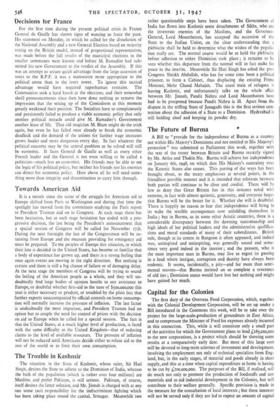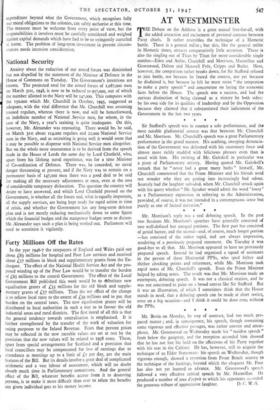Capital for the Colonies
The first duty of the Overseas Food Corporation, which, together with the Colonial Development Corporation, will be set up under a Bill introduced in the Commons this week, will be to take over the project for the large-scalewroduction of groundnuts in East Africa, and to compensate the Minister of Food for expenses already incurred in this connection. This, while it will constitute only a small part of the activities for which the Government plans to lend £165,000,000 to the new corporations, is a project which shoujd be showing some results at a comparatively early date. But most of this large sum will be devoted to long-term schemes of investment and development, involving the employment not only of technical specialists from Eng- land, but, in the early stages, of material and goods already in short supply, and this at a time when capital expenditure at home is having to be cut by L200,000,000. The purposes of the Bill, if realised, will do much not only to promote the production of foodstuffs and raw materials and to aid industrial development in the Colonies, but will contribute to their welfare generally. Specific provision is made in the measure for the consultation of local interests ; but these interests will not be served only if they are led to expect an amount of capital expenditure beyond what the Government, which recognises fully our moral obligations to the colonies, can safely authorise at this time. The measure must be welcome from every point of view, but the responsibilities it involves must be carefully considered and weighed against capital demands which have had to be so stringently curtailed it home. The problem of long-term investment in present circum- stances needs intensive consideration.



































 Previous page
Previous page